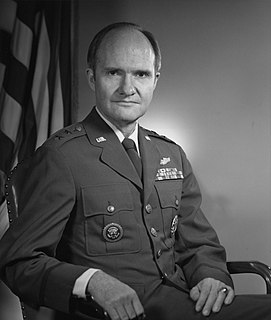A Quote by Marion Nestle
We don't have a farm-to-table food safety system. I keep saying this. It came as a big surprise to the FDA that tomatoes were being grown in the United States, sent to Mexico for packing, and then sent back. I mean, they had no idea that our food chain worked like this.
Related Quotes
The Samaritan woman grasped what He said with fervor that came from an awareness of her real need. The transaction was fascinating. She has come with a buket. He sent her back with a spring of living water. She had come as a reject. He sent her back being accepted by God Himself. She came wounded. He sent her back whole. She came laden with questions. He sent her back as a source for answers. She came living a life of quiet desperation. She ran back overflowing with hope. The disciples missed it all. It was lunchtime for them.
Imagine if we had a food system that actually produced wholesome food. Imagine if it produced that food in a way that restored the land. Imagine if we could eat every meal knowing these few simple things: What it is we're eating. Where it came from. How it found its way to our table. And what it really cost. If that was the reality, then every meal would have the potential to be a perfect meal.
To speak only of food inspections: the United States currently imports 80% of its seafood, 32% of its fruits and nuts, 13% of its vegetables, and 10% of its meats. In 2007, these foods arrived in 25,000 shipments a day from about 100 countries. The FDA was able to inspect about 1% of these shipments, down from 8% in 1992. In contrast, the USDA is able to inspect 16% of the foods under its purview. By one assessment, the FDA has become so short-staffed that it would take the agency 1,900 years to inspect every foreign plant that exports food to the United States.
Food safety oversight is largely, but not exclusively, divided between two agencies, the FDA and the USDA. The USDA mostly oversees meat and poultry; the FDA mostly handles everything else, including pet food and animal feed. Although this division of responsibility means that the FDA is responsible for 80% of the food supply, it only gets 20% of the federal budget for this purpose. In contrast, the USDA gets 80% of the budget for 20% of the foods. This uneven distribution is the result of a little history and a lot of politics.
There had been a free and open election in Haiti in the early 1990s and president Jean-Bertrand Aristide won, a populist priest. A few months later came the expected military coup - a very vicious military junta took over, of which the United States was passively supportive. Not openly, of course, but Haitians started to flee from the terror and were sent back and on towards Guantanamo Bay. Of course, that is against International Law. But the United States pretended that they were "economic refugees."
Those of us who think about what we eat, how it's grown, those of us who care about the environmental impact of food - we've been educated by fabulous books, like Fast Food Nation and documentaries like Food Inc. But despite these and other great projects that shine a critical light on the topic, every year the food industry spends literally tens of millions of dollars to shape the public conversation about our food system.
I would require every producer of food to follow and have enforced a standard safety plan. We know how to produce safe food. It has a horrible name; it's called HACCP - Hazard Analysis and Critical Control Point - and this was a food safety system that was developed for NASA so that astronauts wouldn't get sick in outer space. If you just think about what it might be like to have food poison under conditions of zero gravity, you don't even want to think about it.































